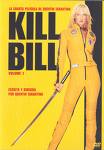The new Democratic majority congress opens its first session today. One of the big questions since the election has been: aside from not being Republicans, how will the new majority define themselves and seek to drive change at a national level. Beyond some tactical priorities such as increasing the minimum wage and trying to pass price controls on prescription drugs, the new majority does not come with a grand strategic vision the way the Contract With America crew did twelve years ago. (Sadly, they didn't get that much of the grand strategic vision implemented, but they did have one.)
The other day I was listening to NPR, and a Democratic strategist was opining that the big opportunity for Democrats at this time was to focus on providing economic stability. In that past, he said, stability was mainly a concern of the lower/working class, with low end union workers seeking protectionist policies while middle class and upper class voters favored the opportunities opened by free trade.
This has changed now, according to this strategist, and middle class and upper middle class professionals are also worried about their jobs becoming obsolete, or being exported to other countries. He argued that people were willing to make economic and political trade-offs now in order to get a guarantee of stability in their lives.
Now, I've seen some of this anxiety of late, in that I work on the periphery of the IT industry, which for a while was seen as the goose with an unlimited supply of golden eggs for anyone with a technical degree, and now has a lot of IT people worried that there won't be any jobs for them stateside in another decade. This is scary stuff, and surprising stuff for the people who went into the industry thinking that having the letters "IT" associated with your name was a promise of endless upper-middle-class employment.
So I understand the worry (once you have something you value, it's natural to worry about losing it) but I think there's an unreasonably self-indulgent aspect to it. As Americans, we're privileged to live in one of the most affluent and advanced countries in the world, and in history. Even our unskilled labor makes more money than professionals do in many developing nations. And our skilled labor and professionals have pretty much the highest living standard in the world.
Two things, I think, are important to keep in mind in regards to that. First, we don't
deserve such bounty simply because we live in American in the 21st century. We're lucky to have it, and we want to keep it, but there's not some inherent reason why we
should have all this and people living in Congo or Pakistan or China
shouldn't. (There are definitely historical reasons why they don't, and I'm not saying we're personally obligated to remedy those historical situations, but it doesn't seem fair to me to say that high paying work should not go to developing nations simply by virtue of the fact that they are not us.)
Second, the world is a rapidly changing place. Those of us designated as "skilled labor" are often the particular beneficiaries of that. Thirty years ago it wasn't possible to publish websites or do pricing regression analysis on ten thousand products in an afternoon. There's no telling how many of the skills we pride ourselves on now will be obsolete in thirty years, and how many new ones will be in demand. I think part of what the "skilled labor" market is supposed to do in order to earn the wages that it does is adjust to those ever changing realities.
The sorts of work needed in this country have changed so much over the last 3-4 generations, it's hard to imagine what it would be like if we somehow enforced sufficient stability to keep people's current jobs from becoming obsolete. A hundred years ago horses were still the primary means of local transport, and occupations related to breeding and training horses and building carts and carriages were of high importance. More than 30% of the country was employed in agrictultural work 100 years ago, and now (if memory serves) less than 10% is. Steam engines and telegraphs were cutting edge technology: when's the last time you ran into a steam engine consultant?
Our parents and grandparents and great grandparents didn't have the luxury of knowing that the kinds of work they'd have to do to make a living would remain constant for their entire adult lives. So how exactly do we, with our cell phones and ipods and high speed internet connections, get away with suddenly asking for the security of knowing that our jobs will never go out of fashion?
The idea may be appealing to a lot of voters, but that doesn't mean that it makes any sense.










